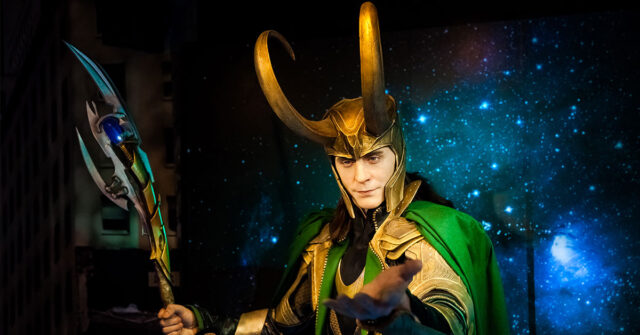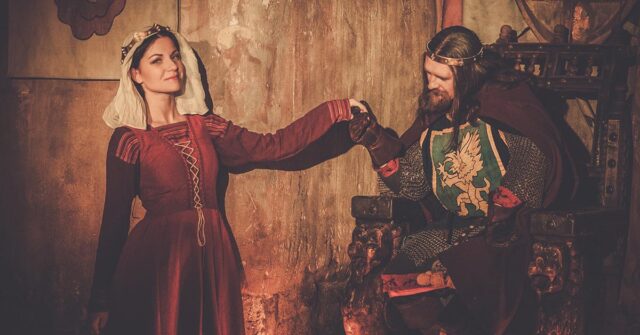Norse mythology, a treasure trove of tales and legends, chronicles the adventures of gods and mortals in a universe far beyond the ordinary.
It’s like a journey back in time to the Viking Age, filled with stories that still echo in our modern world, providing not just entertainment but also insights into the beliefs and values of our ancestors.
Introduction to Norse Mythology
At its core, Norse mythology is the bedrock of ancient Scandinavian folklore, a collection of stories that were shared around crackling fires under the Northern skies.
It’s more than just tales of gods and giants; it’s a window into the soul of the Viking world, reflecting their fears, hopes, and the essence of life itself.
This mythology continues to fascinate us, finding its way into books, movies, and even video games, proving that old tales never truly fade away.

Definition and Scope
Norse mythology encompasses the myths of North Germanic peoples, predating the Christianization of Scandinavia.
It’s a universe populated with formidable gods like Odin and Thor, mischievous giants, and creatures that defy imagination.
The scope is vast, covering creation, the fates of gods and men, and the inevitable end of the world, Ragnarok.
Importance in Modern Culture
The echoes of Norse myths are found everywhere in modern culture, from the names of the weekdays to the thematic underpinnings of blockbuster movies.
They remind us of a time when the world was steeped in magic and mystery, offering lessons and warnings that remain relevant today.
Their continued presence underscores a collective longing for stories that explore the complexities of life and existence.
Historical Context
The Viking Age, from the late 8th to the early 11th century, was a period of seafarers, warriors, and explorers.
Norse mythology was not just a collection of stories; it was the spiritual and moral guide for the Vikings.
It influenced everything from their art to their warfare, serving as both comfort in the harsh Northern landscape and inspiration for their daring exploits across the seas.
The Viking Age and Norse Culture
Viking society was complex, with a rich oral tradition that preserved the myths through generations.
These stories were more than entertainment; they were part of a cultural fabric that bound the community together, offering explanations for the natural and spiritual world around them.
Geographical Spread of Norse Mythology
As Vikings traveled, they took their stories with them, from the shores of North America to the steppes of Russia, weaving their mythology into the tapestry of global history.
The geographical spread of Norse mythology is a testament to its adaptability and enduring appeal, influencing cultures far beyond its Scandinavian origins.

Primary Sources of Norse Myths
The majority of what we know about Norse mythology comes from two primary sources: the Poetic Edda and the Prose Edda.
These medieval manuscripts are like the ancient libraries of the Norse world, packed with stories of gods, heroes, and the cosmos.
The Poetic Edda
The Poetic Edda, a collection of Old Norse poems, is a crucial source for understanding Norse mythology.
Its verses speak of gods, giants, and the destiny of the world, offering a glimpse into the Viking imagination and spiritual beliefs.
The Prose Edda
Written by Snorri Sturluson, the Prose Edda provides a more structured look at Norse myths, blending traditional stories with Snorri’s own interpretations.
It’s like a guidebook to the ancient Norse universe, invaluable for anyone diving into this captivating world.
Sagas and Historical Texts
Besides the Eddas, sagas and other historical texts offer narratives filled with heroism, treachery, and the supernatural.
These stories, written by unknown authors, serve as a bridge between myth and history, revealing the Vikings’ worldview and values.
Archaeological Contributions
Archaeology has unearthed treasures that illuminate the world of Norse mythology.
From rune stones to burial sites, these artifacts provide a tangible link to the myths, showing how deeply these stories were woven into the fabric of Viking life.
Gods, Goddesses, and Beings
In the Norse pantheon, gods and other beings embody the forces of nature, human virtues, and vices.
They live in a world that mirrors the human one, full of drama, humor, and conflict, reflecting the Vikings’ understanding of the universe and their place within it.

The Aesir
and Vanir: An Overview
The gods of Norse mythology are divided into two tribes: the Aesir, associated with war and government, and the Vanir, linked to nature and fertility.
This division reflects the complexities of life and the balance between different forces and aspects of existence.
Key Figures in Norse Mythology
Among the pantheon of Norse gods, figures like Odin, Thor, Loki, and Freya stand out, each representing distinct aspects of the cosmos and human nature.
Their adventures, often intertwined with those of humans and other beings, form the core of Norse mythology.
Odin: The Allfather
Odin, the chief of the gods, is a figure of wisdom and war. Known for his relentless quest for knowledge, he’s a complex character who embodies the pursuit of understanding, even at great personal cost.
Thor: God of Thunder
Thor, with his mighty hammer Mjolnir, is the protector of gods and humans alike. His battles against giants are legendary, showcasing his role as a defender against chaos and destruction.
Loki: The Trickster
Loki is a figure of contradiction, capable of both harm and help. His tricks and transformations reveal the unpredictable nature of the world, challenging the order established by the gods.
Freya: Goddess of Love and War
Freya, renowned for her beauty and prowess in battle, embodies the multifaceted nature of existence, blending aspects of love, fertility, and war into a single deity.

Mythical Creatures and Their Meanings
Norse mythology is populated with a host of mythical creatures, from the mighty dragons to the mischievous dwarfs.
Each creature serves a purpose, symbolizing aspects of the natural world and human psychology, enriching the myths with layers of meaning.
Creation Myths and Cosmology
The Norse creation myth is a tale of fire and ice, emerging from chaos to form the world as known to the Vikings.
At the center of it all stands Yggdrasil, the world tree, connecting the different realms and supporting the cosmos.
The Creation of the World
The story begins in the void, Ginnungagap, where the heat of Muspelheim and the cold of Niflheim meet to create the first beings and the world itself.
It’s a dramatic tale of emergence and creativity, reflecting the harsh and beautiful landscapes of Scandinavia.
Yggdrasil and the Nine Worlds
Yggdrasil connects the nine worlds, from the gods’ home of Asgard to the human realm of Midgard.
This cosmic structure reflects the Norse understanding of the universe as interconnected and dynamic, with the world tree at its heart.
Ragnarok: The Twilight of the Gods
Ragnarok is the end of the world, a final battle leading to the death of gods, the destruction of the cosmos, and its eventual rebirth.
It’s a powerful reminder of the cycle of life and death, renewal and destruction that underpins existence.

Themes and Beliefs in Norse Mythology
Norse mythology is rich with themes of fate, heroism, and the quest for knowledge.
These stories reflect the Vikings’ beliefs about the world, offering insights into their understanding of fate, the afterlife, and the power of magic.
Fate and the Norns
The Norns, weavers of fate, underscore the Norse belief in destiny. Their presence reminds us that while the path may be set, the journey itself is in our hands, a balance between predestination and free will.
Valhalla and the Afterlife
Valhalla, Odin’s hall, is the warrior’s paradise, but Norse mythology speaks of other afterlives too, reflecting a nuanced view of existence beyond death.
These beliefs offer comfort and a framework for understanding life’s ultimate journey.
The Role of Magic and Seidr
Seidr, the magic of the Norse world, is a tool for insight and influence, wielded by gods and mortals alike. It reveals the Vikings’ belief in the power of knowledge and the unseen forces that shape our lives.
Influence on Literature and Popular Culture
Norse mythology continues to inspire creators around the globe, its themes and characters resonating in our collective imagination.
From epic fantasies to modern philosophies, these ancient tales continue to influence and entertain, proving that the old gods are not forgotten.

Norse Mythology in Modern Literature and Media
The tales of the Norse gods have found new life in novels, movies, and television, captivating audiences with their depth and dynamism.
They remind us of the power of storytelling and the enduring appeal of exploring the unknown.
The Impact on Language and Names
The influence of Norse mythology extends to our very language, with words and names rooted in the ancient tales.
This linguistic legacy is a testament to the profound impact of the Norse worldview on the cultural fabric of the West.
Modern Paganism and Asatru
For some, Norse mythology is not just history but a living tradition.
Asatru, a modern pagan religion, celebrates the ancient gods and practices, highlighting the continued relevance of these stories in seeking meaning and connection in the modern world.
Contemporary Scholarship and Interpretations
As scholars delve deeper into the Norse myths, new interpretations emerge, shedding light on the complexities of these ancient stories.
This ongoing research enriches our understanding, proving that Norse mythology is a field alive with discovery and debate.
Debates and Challenges in Understanding Norse Mythology
The study of Norse mythology is fraught with challenges, from interpreting ancient texts to understanding the context in which these stories were told.
Yet, these debates are vital, driving forward our understanding and appreciation of this rich cultural heritage.
Archaeological Discoveries and Their Impact
Recent archaeological findings continue to illuminate the world of the Vikings, offering new insights into the myths that shaped their lives.
Each discovery is a piece of the puzzle, bringing us closer to understanding the ancient North.

Conclusion
Norse mythology, with its gods, giants, and heroes, is a testament to the imaginative power of the human spirit.
Its stories, rooted in the landscapes and cultures of ancient Scandinavia, continue to inspire and intrigue, offering a window into the beliefs and values of a bygone era.
As we explore these tales, we find not just entertainment, but reflections on life, nature, and the eternal quest for knowledge and meaning.
The gods may have fallen silent, but their stories live on, as captivating now as they were a millennium ago.











